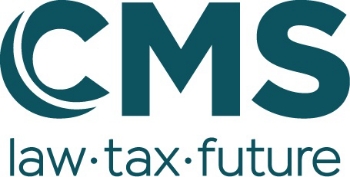Draft law
On March 29 2017 the Federal Cabinet adopted a draft law for the introduction of a so-called 'competition register'. As far as the Ministry of Economics is concerned, the act should be passed before the federal election in September 2017. This act will allow for the establishment of a Germany-wide register to record companies which have committed certain criminal and administrative offences. Its major aim is to promote fair competition and replace the corruption registers introduced in many German states that deviate from each other with regard to essential issues. By providing relevant information, it is intended to make it easier for contracting authorities to review whether providers are to be excluded from award procedures. The reason behind this is the statutory requirement that public contracts may be awarded only to companies that act in compliance with statutory law and whose integrity is not otherwise questionable.
Register
In addition to the Federal Central Criminal Register and the Central Trade Register established at the Federal Office of Justice, the competition register is to be located at the Federal Cartel Office in Bonn. While criminal convictions are entered in the Federal Central Criminal Register, the Central Trade Register contains fine and administrative decisions (eg, ban on engaging in commercial activities). The competition register is to serve contracting authorities in awarding public contracts and is thus intended to be established in the sphere of responsibility of the Ministry of Economics. The aim is that the register will be fully functional in the form of a digital database by 2020 at the latest.
The draft law stipulates that the law enforcement agencies must notify the register of information concerning the affected undertakings and persons. Final and absolute criminal convictions and punishment orders and final and absolute decisions regarding the crimes and offences punishable with a fine listed in the statute must be entered in the register. In particular, this includes the crimes listed in the Act Against Restraints on Competition (eg, money laundering, bribery, tax evasion and agreements restraining competition). Convictions of individuals will be attributed to an undertaking if the persons acted in a responsible capacity on behalf of the undertaking.
Before making an entry, the authority must inform the undertaking affected, at least by email. This gives the undertaking the opportunity to state its position.
Contracting authorities must electronically retrieve information regarding the entries from the competition register before awarding a public works, services or supply contract that exceeds a certain contract value – the threshold is usually €30,000 (excluding value added tax). It is also possible to obtain this information during the pre-qualification phase.
Deletion
The deletion deadlines are based on the maximum period for order bans in accordance with public procurement law and are three or five years, depending on the type of misconduct. If the deadline has not yet expired, an undertaking may apply for premature deletion owing to self-cleaning. Under public procurement law, an undertaking guilty of misconduct that justifies exclusion from the award procedure may bring about its re-admission to the tender process by taking the self-cleaning measures required by statute, including:
- compensation in respect of any damage or loss caused by the misconduct;
- active cooperation with the investigating authorities; and
- specific technical, organisational and personnel measures that are appropriate to prevent further criminal offences or misconduct.
In addition to the contracting authority acting only within the framework of a specific award procedure, the registry authority will also be authorised to assess whether undertakings may be included in the prochess despite their misconduct. If the registry authority determines that the self-cleaning measures are sufficient, the self-cleaning is entered into the register and is binding on all contracting authorities. Introducing such a central review of self-cleaning measures has the advantage that undertakings affected will not repeatedly undergo scrutiny during every award procedure. The registry authority will carry out the review of self-cleaning measures on request by the undertaking in return for an administrative fee. Reasons must be given for any rejecting decision. Appealing the decision of the registry authority before the competent higher regional court is permissible.
The Germany-wide standardisation of the corruption register system is welcome. The introduction of a general self-cleaning procedure is particularly advantageous, as it allows affected companies to actively obtain re-admission to the full market of public works, services and supplies. However, the draft act still must pass Parliament and the database will have to be functional.
For further information on this topic please contact Christian Scherer-Leydecker at CMS Hasche Sigle by telephone (+49 221 7716 116) or email ([email protected]). The CMS Hasche Sigle website can be accessed at www.cms.law.
This article was first published by the International Law Office, a premium online legal update service for major companies and law firms worldwide. Register for a free subscription.



